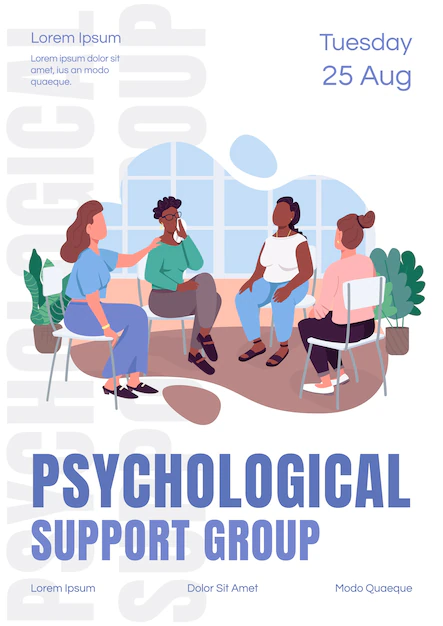Navigating the Landscape on Top 20 Career Paths for Community Psychology Graduates

Graduating with a degree in community psychology opens up a myriad of career opportunities for individuals passionate about promoting social justice, advocating for marginalized populations, and fostering community well-being. From direct service roles to research positions and advocacy work, community psychology graduates are equipped with the knowledge, skills, and values needed to make a meaningful impact in various settings. In this article, we explore the top 20 career paths for individuals with community psychology degrees, highlighting the diverse range of opportunities available to graduates in this field.

Page Contents
- Community Organizer:
Community organizers work to mobilize communities around specific issues, such as affordable housing, environmental justice, or access to healthcare. They facilitate grassroots organizing efforts, build coalitions, and empower community members to advocate for change.
- Program Evaluator:
Program evaluators assess the effectiveness of social programs and interventions aimed at improving community well-being. They design and implement evaluation plans, collect and analyze data, and provide recommendations for program improvement.

- Research Analyst:
Research analysts conduct research on various social issues, using quantitative and qualitative methods to gather and analyze data. They may work for research institutes, non-profit organizations, or government agencies, contributing to the development of evidence-based policies and programs.
- Non-profit Manager:
Non-profit managers oversee the operations of non-profit organizations focused on community development, social services, or advocacy. They are responsible for strategic planning, fundraising, program management, and staff supervision.
- Community Health Worker:
Community health workers provide outreach, education, and support services to individuals and families in underserved communities. They promote health equity, facilitate access to healthcare services, and address social determinants of health.
- Policy Analyst:
Policy analysts research and analyze public policies related to social justice, equity, and community development. They identify policy gaps, advocate for policy change, and collaborate with stakeholders to influence decision-making processes.
- Diversity and Inclusion Specialist:
Diversity and inclusion specialists work to create inclusive environments in workplaces, educational institutions, and community organizations. They develop diversity training programs, implement inclusive policies, and promote cultural competence.
- Mental Health Counselor:
Mental health counselors provide counseling and therapy services to individuals, couples, and families experiencing mental health challenges. They assess clients’ needs, develop treatment plans, and provide support and guidance to promote emotional well-being.
- Social Worker:
Social workers advocate for individuals and communities facing social, economic, or environmental challenges. They provide counseling, case management, and advocacy services, connecting clients with resources and support systems.
- Community Educator:
Community educators develop and facilitate workshops, training sessions, and educational programs on topics such as mental health, parenting skills, and conflict resolution. They work to increase awareness, build skills, and empower community members.
- Youth Development Specialist:
Youth development specialists design and implement programs and activities aimed at promoting the positive development of young people. They provide mentoring, leadership development, and support services to help youth reach their full potential.
- Environmental Justice Advocate:
Environmental justice advocates work to address environmental inequalities and promote environmental sustainability in low-income and minority communities. They advocate for policies and practices that protect communities from environmental harm and promote environmental justice.
- Program Coordinator:
Program coordinators oversee the implementation of community programs and initiatives, ensuring that objectives are met and resources are effectively utilized. They coordinate activities, manage budgets, and evaluate program outcomes.
- Community Engagement Specialist:
Community engagement specialists facilitate meaningful engagement and collaboration between organizations, government agencies, and community members. They build partnerships, facilitate community meetings, and promote civic participation.
- Humanitarian Aid Worker:
Humanitarian aid workers provide assistance to communities affected by natural disasters, conflict, or humanitarian crises. They deliver emergency relief, coordinate humanitarian efforts, and support long-term recovery and development projects.
- Grant Writer:
Grant writers research funding opportunities, develop grant proposals, and secure funding for community-based organizations and programs. They communicate the organization’s mission and objectives to potential funders and ensure compliance with grant requirements.
- Public Health Educator:
Public health educators design and implement health promotion programs and campaigns aimed at improving community health outcomes. They develop educational materials, conduct outreach activities, and advocate for policies that support public health.
- Community Researcher:
Community researchers conduct research studies focused on understanding community needs, assets, and challenges. They collaborate with community members, organizations, and stakeholders to co-create research projects that address community priorities.
- Policy Advocate:
Policy advocates work to influence public policy decisions at the local, state, or national level. They research policy issues, develop advocacy strategies, and engage policymakers and community members in advocacy efforts.
- Disaster Response Coordinator:
Disaster response coordinators plan and coordinate emergency response efforts in the event of natural disasters, pandemics, or other emergencies. They develop emergency preparedness plans, coordinate response activities, and ensure the safety and well-being of affected communities.
Conclusion:
Community psychology graduates are well-positioned to pursue diverse and rewarding career paths that allow them to make a positive impact in communities locally, nationally, and globally. Whether working directly with individuals and families, conducting research and evaluation, advocating for policy change, or mobilizing communities for social action, community psychology graduates play a critical role in promoting social justice, equity, and well-being for all. With their interdisciplinary training, practical experience, and commitment to social change, they are poised to create a more just and equitable world for future generations.







